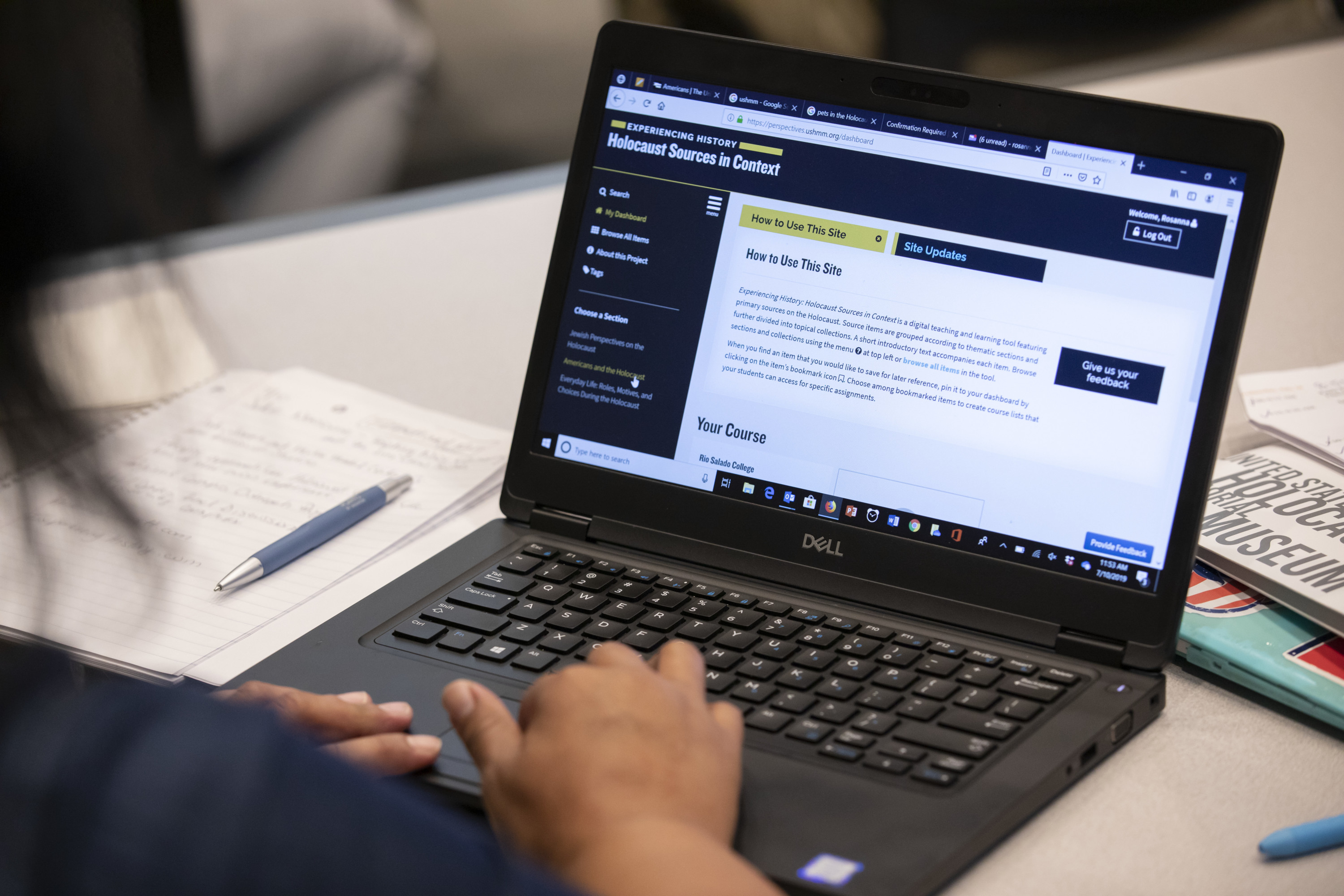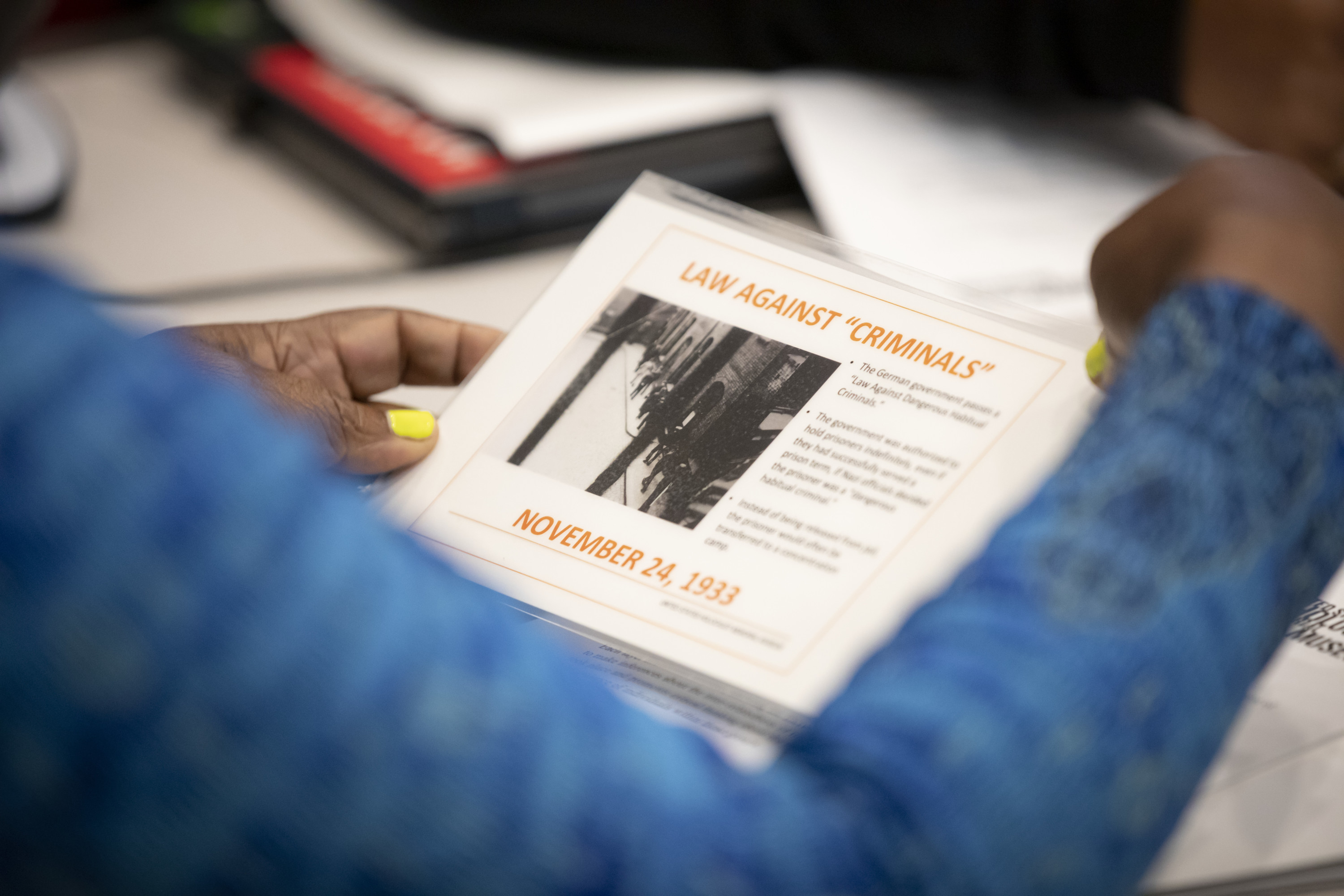The following resources were created to assist educators using distance learning platforms to teach about the Holocaust. Visit our Teaching Materials by Topic pages to see all Museum lesson plans.
Not sure where to begin?
Museum educators can connect you with classroom resources and answer questions about teaching the Holocaust.
Lesson Plans for Distance Learning
These lesson plans were created or modified for distance learning.
Click on the title below to learn more and to download the files.
- Diaries as Historical Sources
- The Holocaust: History and Memory Virtual Field Trip
- Nazi Racism
- Rescue and Survival in Hiding
- Resistance During the Holocaust
- History of Antisemitism and the Holocaust
Online Lessons, Compatible with Learning Management Systems
These lessons are compatible with learning management systems or web browsers for students to complete individually or as a class. Each lesson includes a link as well as SCORM files to upload into your LMS. Please preview the lesson before assigning to your students. A PDF of the original lesson plan is available to use as a guide.
Videos and Viewing Guides
These videos explore the experiences of Holocaust survivors, the Museum’s collections, and Holocaust history. Explore key videos.
Americans and the Holocaust Tour and Viewing Guide (PDF)
This viewing guide accompanies a 39-minute tour of Americans and the Holocaust led by exhibition curator Dr. Daniel Greene. It includes reflection questions to consider while watching the tour and concluding writing prompts.
Path to Nazi Genocide Viewing Guide (PDF)
Organized around a Museum-produced 38-minute documentary, The Path to Nazi Genocide, this worksheet provides students with an introduction to the history of the Holocaust.
Additional Resources
Bibliography and Videography (PDF)
This bibliography provides examples for the secondary school level that meet the Museum’s rubric criteria. It includes diaries, memoirs, secondary sources, literature, graphic novels, and films.





